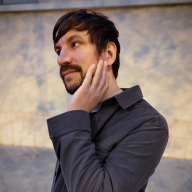
Markus Amalthea Magnuson
Bio
How others can help me
I'm looking for ambitious funding for several EA organisations in the tech and governance spaces.
How I can help others
I'm an experienced software engineer with a focus on full-stack web development and have worked with websites for 15+ years. Anyone who needs anything related to that are welcome to chat, and it's also what my organisation Altruistic Agency offers for free.
Posts 13
Comments58
I just find it funny how posting something like that in a public forum will, of course, make it seen by journalists sooner or later, anyway.
It's the second bit that concerns me more because I think it's essentially a correct description of how CEA, and EAs in general (largely because of CEA's influence), view public engagement. Any interaction outside the community is seen mainly as something that should be handled through a lens of risk mitigation. The way it's phrased makes it sound like the CEA stopped 78% of 137 virus outbreaks.
Like I wrote elsewhere, I think the danger with the "don't talk to media" approach is that you get very few views into a movement, mostly from leadership, and if one of those rare appearances takes a wrong turn, there is not a plurality of other views and appearances out there to balance it.
For example, if the only people who "should" give interviews are EA leadership philosophers that are deeply into longtermism, that will make it seem like the entire EA movement is all about longtermism. This is not true.
Imagine thinking this is a good outcome of the "keep your mouth shut" strategy CEA recommends regarding media:
Effective altruism is not a cult. As one EA advised his peers in a forum post about how to talk to journalists: “Don’t ever say ‘People sometimes think EA is a cult, but it’s not.’ If you say something like that, the journalist will likely think this is a catchy line and print it in the article. This will give readers the impression that EA is not quite a cult, but perhaps almost.”
…
Effective altruism treats public engagement as yet another dire risk. Bostrom has written about “information hazards” when talking about instructions for assembling lethal weaponry, but some effective altruists now use such parlance to connote bad press. EAs speak of avoiding “reputational risks” to their movement and of making sure their “optics” are good. In its annual report in 2020, the Centre for Effective Altruism logged all 137 “PR cases” it handled that year: “We learned about 78% of interviews before they took place. The earlier we learn of an interview, the more proactive help we can give on mitigating risks.” It also noted the PR team’s progress in monitoring “risky actors”: not people whose activities might increase the existential risks to humanity, but those who might harm the movement’s standing.
Terrible look, to be honest.
It seems very important to involve the community at all levels, including the main arena of discussions.
Additionally, delegating important community-affecting processes (and eventually, decisions) to small "expert groups" might actually be one of the mechanisms one could criticise the EA community to be over-reliant on, and that causes some of the problems in the first place.
I also wanted to point out that norm changes might not be entirely what a lot of people have in mind, but rule changes too. An important distinction.
I've spent a lot of time this year looking into this exact scenario and discussing various models with many people with different views. Most other EA agencies are trying to figure it out as well.
What is most likely is that I'll move to a hybrid model where the first X hours are free, and after that, most would pay some (below market rate) fee that is offset by larger clients that can afford market rate. The main reason for this is that my data suggests around 70% of clients would have tried to solve the issues themselves otherwise, which is a huge time waste. Another reason is that there is a significant transaction cost, especially given that the funding for services like these often comes from the same sources (in the EA funding landscape) in the end.
In any case, I expect this part of the agency's activities to be relatively small in the future, as creating public goods and services is immensely more valuable.

Yeah, I think a lot of people simply have not looked into how essential voluntary immigration has been for the demographics and economy of most rich countries.